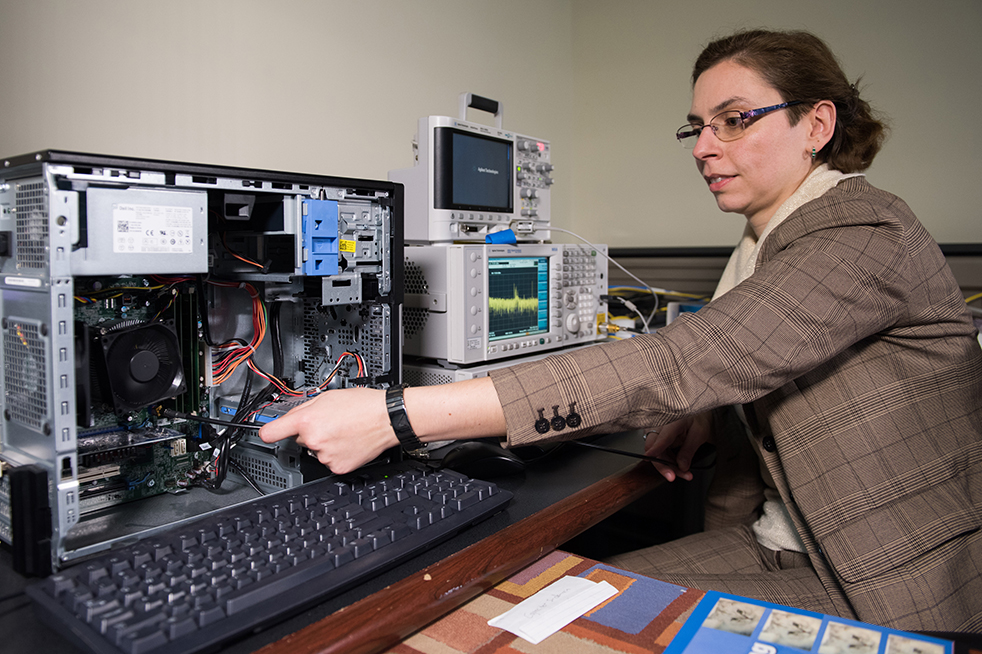Two major issues within the last couple years greatly illustrate the growing presence of the hacking culture: the Snapchat incident of 2013, where users’ phone numbers and images were leaked, and the Sony hack, where North Korean hackers leaked emails from a key Sony executive to stop the release of the James Franco and Seth Rogan movie, The Interview. Although North Korea’s main objective was not entirely successful (the movie was released in selected theaters and can be purchased online), hacking is still a major global issue.
For this reason, computer security experts have been focused on protecting cyber information by strengthening security for the internet and wireless communication. Technological devices, however, leak signals that were thought to be nearly undetectable.
Dr. Alenka Zajic, an assistant professor in the School of Electrical and Computer Engineering, along with her husband and colleague Milos Prulovic, an associate professor in the School of Computer Science, prove that this is not the case.
In an effort to work together and combine each other’s fields of expertise, Zajic and Prulovic decided to take on this ambitious project in 2009. Now, their group has made significant headway and the impact of their research could revolutionize the information security realm. She warns students that even when they might think their computers are off, the devices are in fact still “hackable.”
“When you disconnect the power plug, Internet and everything else, your computer still leaks information,” Zajic said. “That happens because the change in voltage levels generates electromagnetic fields that you can read at some distance.”
When further describing the relation of signal strength to proximity, Zajic said that when taking measurements, she could be typing in one room and her colleague in the room next door could read the signals.
It is unsettling to know that even when offline there is still a possibility of being hacked.
When asked why more people are not aware of the issue, Zajic said, “I think because they believe that there is enough online activity that you wouldn’t be able to distinguish what you are doing offline. The assumption was that reading these signals would be complex enough that worrying about it wasn’t necessary.”
With these issues coming to light, one obvious questions stands: How can I prevent this information from being leaked? Unfortunately, individuals can only remain worried for the time being. There are no specific precautions or safeguards currently available.
Zajic, however, quickly added, “Ask me in a year; we are working on a jammer to plug in as a USB stick that can protect the field around you so no one can steal the data.”
The progress that Zajic and her team have made is merely the
beginning.
“This is pretty much an open field. We have just scratched the surface. Many more things can be done,” Zajic said.
